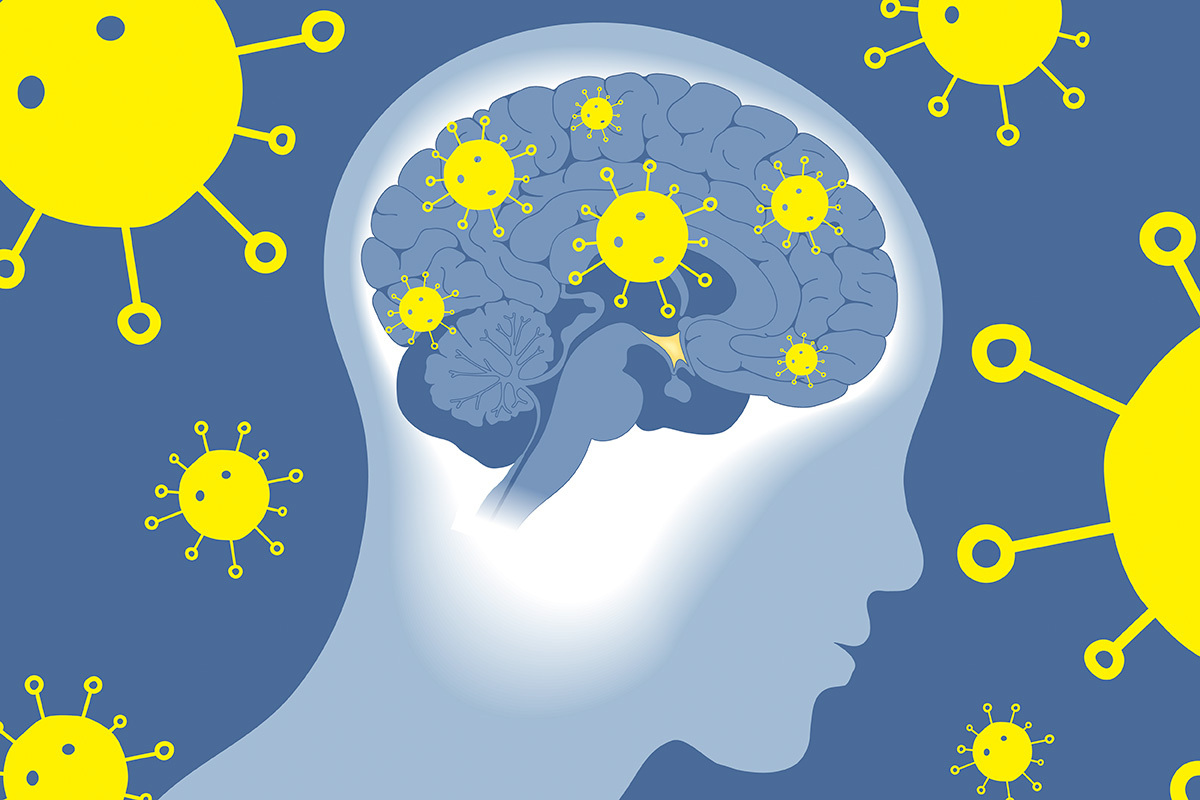How Severe COVID Infections Can Inflame the Brain’s Control Center: Understanding the Neurological Risks
Severe COVID-19 infections have led to a deeper understanding of how the virus impacts not just the lungs but also the brain. Emerging research reveals that COVID-19 can cause brain inflammation and trigger a host of neurological symptoms, including cognitive impairment, brain fog, and even long-term brain damage. For some, the effects of COVID-19 extend far beyond recovery from the virus itself, affecting mental health and cognitive function in profound ways.
This article delves into the growing body of evidence that links severe COVID infections to brain-related damage, exploring how the virus enters the brain, the risks of long-term neurological damage, and the available treatments for COVID brain inflammation.
How Does COVID-19 Enter the Brain?
COVID-19, caused by the SARS-CoV-2 virus, primarily targets the respiratory system. However, severe cases can lead to complications that extend far beyond the lungs, affecting organs such as the brain. The virus is believed to reach the brain by several mechanisms, including through the bloodstream or directly through the nerves connected to the nose, leading to the central nervous system(Nature).
Once in the brain, SARS-CoV-2 can trigger an inflammatory response that disrupts normal brain function. Research into SARS-CoV-2 brain entry suggests that the virus may inflame the brain’s control centers, leading to cognitive impairment and, in some cases, severe neurological symptoms(Nature).
COVID Brain Inflammation and Its Effects
COVID brain inflammation occurs when the body’s immune response to the virus overreacts, causing damage to brain tissue. This inflammation can affect various parts of the brain, including regions responsible for memory, focus, and overall cognitive function. Studies have shown that inflammation may lead to short-term effects like brain fog, confusion, and headaches, but it can also have longer-lasting impacts on brain health(Nature).
Severe COVID-19 patients are at higher risk of developing COVID and brain damage, which can lead to serious consequences such as stroke, seizures, or even cognitive decline. This is particularly concerning for individuals with pre-existing neurological conditions, as the virus may exacerbate their symptoms(Nature)(Nature).
Long COVID: Brain Fog and Cognitive Impairment
Even after recovering from the initial infection, many COVID-19 survivors report ongoing symptoms of Long COVID, including brain fog and cognitive impairment. These symptoms often manifest as memory lapses, difficulty concentrating, and slow thinking, severely impacting daily life and mental clarity(BioMed Central).
Long COVID brain effects are still being studied, but early evidence suggests that the inflammation caused by the virus may continue even after the infection has cleared. This lingering inflammation can lead to a range of neurological symptoms that persist for months or even years after recovery. For those affected by Long COVID, these symptoms can be just as debilitating as the acute phase of the disease(NIH COVID-19 Research).
Understanding Neurological Symptoms and Brain Damage
The neurological symptoms of COVID can vary widely, depending on the severity of the infection. For some, symptoms may include headaches, dizziness, and loss of smell or taste, while others may experience more severe consequences like confusion, delirium, and seizures(Nature). In rare cases, COVID-19 has been linked to life-threatening conditions such as encephalitis (inflammation of the brain) or stroke.
Cases of brain damage from COVID have also been reported, particularly among those who required intensive care or mechanical ventilation. This damage can result from a lack of oxygen to the brain (hypoxia), blood clots, or direct viral invasion. Understanding the mechanisms behind this damage is crucial for developing effective treatments and mitigating the long-term effects of the virus(BioMed Central).
Treating COVID Brain Inflammation and Preventing Long-Term Damage
As the link between COVID brain inflammation and neurological symptoms becomes clearer, researchers are working on ways to treat these complications. Current treatments focus on reducing inflammation and managing symptoms. Anti-inflammatory medications, such as corticosteroids, are commonly used to control the immune response and limit further damage(Nature).
For patients experiencing cognitive impairment or brain fog, cognitive rehabilitation programs and mental health support can be beneficial. Early intervention is key to minimizing the long-term impact of COVID cognitive impairment, particularly for those at risk of severe neurological outcomes(NIH COVID-19 Research).
The Long-Term Effects of COVID on the Brain
The long-term effects of COVID-19 on the brain are still not fully understood, but there is growing concern that survivors of severe infections may experience long-term brain damage. This damage could manifest in a variety of ways, from mild cognitive deficits to more severe conditions like dementia or Parkinson’s disease(Nature).
While it is difficult to predict who will experience lasting brain effects, it is clear that the neurological impact of COVID-19 will continue to be a significant area of research in the coming years. As more survivors of severe COVID infections recover, it will be critical to monitor their cognitive health and develop strategies to support their mental well-being.
COVID’s Lasting Impact on the Brain
Severe COVID infections have shown that the virus is not just a respiratory illness but one that can also inflame the brain’s control center, leading to neurological symptoms and cognitive impairment. The effects of COVID on the brain, from brain fog to more severe damage, are becoming increasingly evident, especially for those dealing with Long COVID.
Understanding how COVID brain inflammation occurs, how the virus enters the brain, and the treatments available can help reduce the long-term impact of the disease. For those recovering from COVID-19, monitoring cognitive health and seeking treatment for persistent symptoms is crucial. As research continues, we will learn more about the full extent of COVID’s effects on the brain and how to mitigate the damage it causes.
For more information about COVID-19 and its effects on the brain, visit Regent Studies for resources and updates on the latest research.




